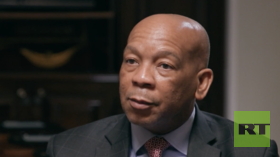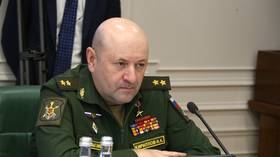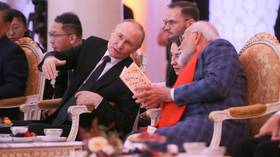BRICS prioritizes growth over competition – South African minister

The aim of BRICS is to advance the collective interests of its members without antagonizing other global powers, South African Energy Minister Kgosientsho Ramokgopa has told RT.
Speaking on the sidelines of the Russian Energy Week in Moscow, Ramokgopa cited the fact that BRICS now accounts for 35% of global GDP as evidence of the group’s growing significance. He also expressed confidence that the group will continue to expand, not in opposition to other international bodies such as the G7 or G20, but in pursuit of mutual technological and economic benefits.
“BRICS exists to advance its own interests ... not to compete with anyone,” Ramokgopa said, underscoring the group’s focus on fostering cooperation.
The BRICS group was founded in 2006 by Brazil, Russia, India, and China, with South Africa joining in 2011. Two more African states, Ethiopia and Egypt, joined in January 2024, along with Iran and the United Arab Emirates. Russia currently holds the chairmanship of the group.
Ramokgopa pointed out that for South Africa, as for many other developing nations, technological and energy collaboration through BRICS can have direct positive impacts on people’s lives. Citing the potential for cheaper electricity through shared technological advancements, Ramokgopa noted that this collaboration allows countries such as South Africa to address pressing national needs, such as energy security and affordability.
Through membership in BRICS, the country is “able to collaborate better,” learn from its partners, and make strides in areas such as energy, where Russia and other members have valuable experience, the official added. He stressed that such partnerships can lead to concrete benefits for citizens, from lower energy costs to improved infrastructure.
“I am confident that the BRICS will continue to grow in leaps and bounds,” he concluded, stressing that the true success of BRICS will be measured by how well it delivers tangible benefits to the people of member states.
Russian Energy Week, an international forum focused on energy cooperation, has been held annually since 2017. This year’s event attracted some 5,000 participants from 84 nations and territories, as well as over 250 companies.













